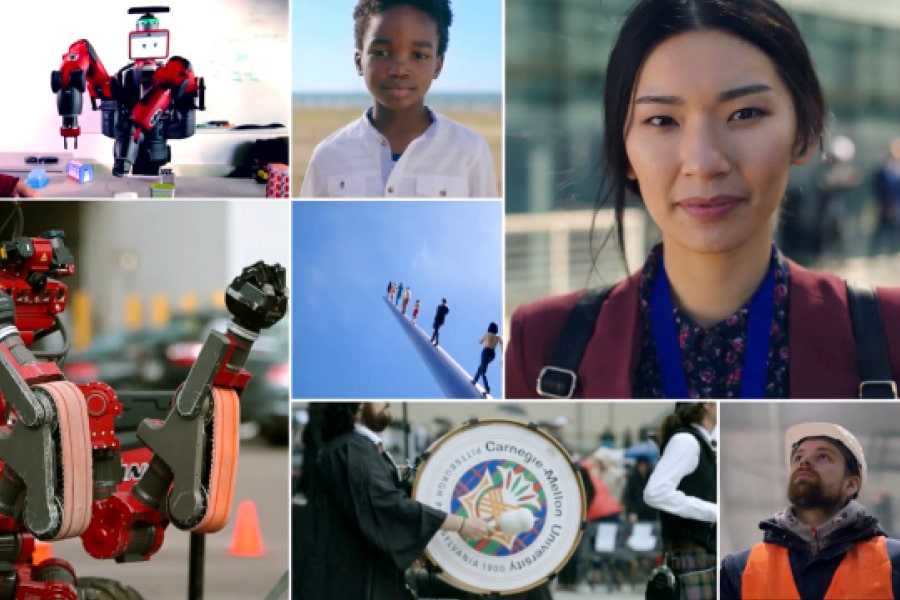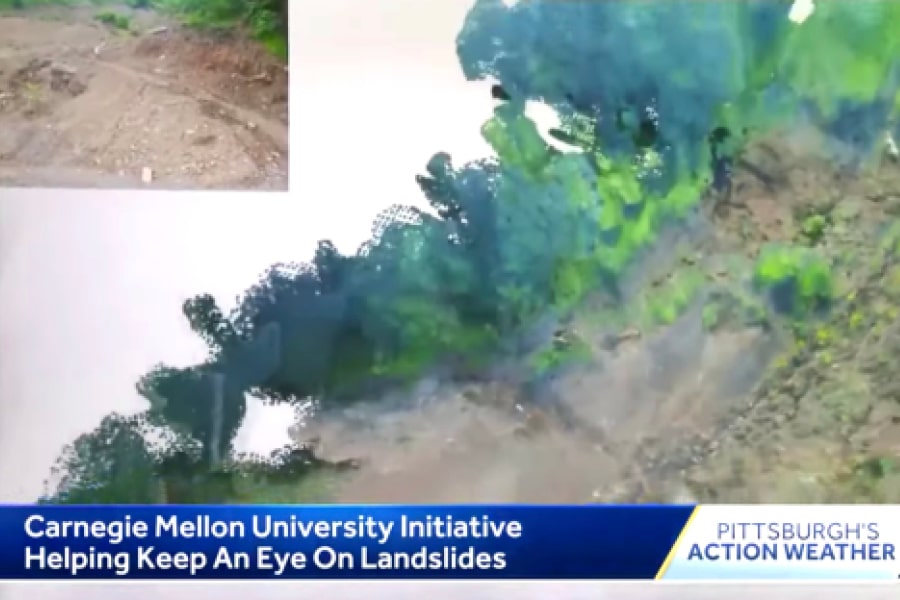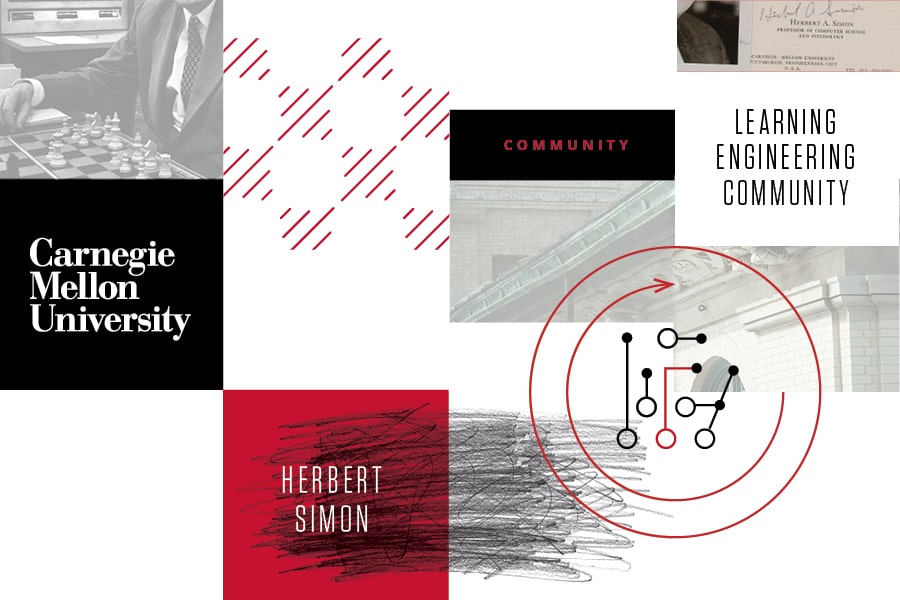Pillar: Real, Practical Impact
Our Passion Is Work that Matters
We want to change the world. Our research and education are aimed at real-world outcomes that benefit real people. Our calling is progress, not process. The world wants pragmatic leaders, practical solutions and creativity you can see and touch — and we've got it. No university is better positioned to improve the human condition on a global scale than Carnegie Mellon University.
Thought-starters
- What are the greatest impacts that the university has been responsible for?
- What are the greatest impacts your school or department has made?
- What impacts are you working toward that are on the near or far horizon?
- Where have you made a difference in new or interesting ways?
Examples in Action
Block Center Master Narrative

An event for C-Level Advisors held by Heinz College for the Block Center in February of 2019 called for some pre-show sizzle. The best way to set the tone for the event and provide a framework for the four featured speakers? A video. University Communications & Marketing working with Heinz College Marketing created a moving story to introduce the vision of the Block Center at the nexus of technology and society — and to highlight CMU’s position to positively impact the future. The video was a compelling prelude to the informative, live talks that followed.
Thought-Starters & Proof Point Examples
What are the greatest impacts that the university has been responsible for?
The Block Center for Technology and Society — just announced in February — will ensure advanced technology has positive benefits for all members of the global community. Keith Block, vice chairman, president and COO of Salesforce, and his wife Suzanne made a gift to launch this center and build new momentum behind the extraordinary research and education at the intersection of technology and humanity — examining the impact of technology on the human condition.
What are the greatest impacts your school or department has made?
The Block Center's Future of Work initiative is dedicated to rigorous scientific investigation of the impact of emerging technologies on workers at all skill levels, as well as the communities they inhabit.
What impacts are you working toward that are on the near or far horizon?
Future of Work charts the impact of disruptive innovation on the U.S. labor market, develops policy interventions that ensure the benefits of innovation are more widely shared, and leverages advanced technologies to address the social and economic needs of those being left behind as a result of technological change.
Where have you made a difference in new or interesting ways?
The Block Center is focused on meaningful innovation and invests in those who are inclusive in their design, ethical in their implementation, and effective in their ability to positively impact human livelihood and well-being. As an example, Heinz College alumna Leah Lizarondo has founded a nonprofit, 412 Food Rescue, that is driven to eradicate food waste while simultaneously combating the problem of food insecurity in low-income communities. Leah's organization has saved over 5 million pounds of food from entering landfills through an ingenious combination of technology, analytics and the energy of thousands of passionate volunteers.
Learn more about the Block Center
Metro21 Media Relations

What if you could stop a landslide before it happens? Carnegie Mellon's Metro21: Smart Cities Institute is a public-private partnership that uses CMU research to make city living easier. On April 29, 2019, WTAE Pittsburgh broke a story about a project that uses artificial intelligence to keep an eye on landslides. This news coverage explained in easily understandable terms how CMU technology can scan and monitor mountains over time. The story brought to life how Metro21’s Landslides Prediction and Analysis project stops landslides before they happen.
Thought-Starters & Proof Point Examples
What are the greatest impacts that the university has been responsible for?
Learn more about the university's greatest impacts in the following question and answer.
What are the greatest impacts your school or department has made?
The United States Geological Survey estimates that each year between 25 and 50 deaths are due to landslides, as well as between $2 billion and $4 billion in annual losses due to property damage. Karen Lightman describes how important the issue is to Pittsburgh and Allegheny County and how Carnegie Mellon's technology is being used to address the landslide problem that is affecting mobility and housing in the City of Pittsburgh.
What impacts are you working toward that are on the near or far horizon?
Ultimately, this project is not only about being able to predict and prevent landslides. They intend to use this work to more equitably direct the infrastructural change necessary to support this kind of prediction and prevention.
Where have you made a difference in new or interesting ways?
The team has started to develop simulation models in ANSYS to make slope stability analysis. These models will help the team understand the static and dynamics of landslides and correlate the observed indicators with the underlying ground stability.
OpenSimon Launch

CMU’s OpenSimon network calls for “Learning Engineering” for everyone. Named after Nobel laureate and CMU professor Herbert Simon, it was developed to improve student learning outcomes and enhance the understanding of human learning as a whole. The approach supports educators with the OpenSimon toolkit, which includes a wide range of free and openly available tools and content. The Simon Initiative team worked with University Communications & Marketing to brand and build the website for the elements Toolkit — everything from a web portal and webinars to educational resources and underlying code.
Thought-Starters & Proof Point Examples
What are the greatest impacts that the university has been responsible for?
Herbert Simon’s work on cognitive psychology and computer science has influenced modern learning techniques globally.
What are the greatest impacts your school or department has made?
Simons’ approach to education prioritizes the learner, emphasizes the importance of evidence over intuition, and is emphatic in the potential of computing technologies to support learning and research in new and effective ways.
What impacts are you working toward that are on the near or far horizon?
Educators and researchers at Carnegie Mellon continue to strive to meet Simon’s call for a systematic and scientific approach to improving teaching and learning.
Where have you made a difference in new or interesting ways?
Carnegie Mellon University has launched OpenSimon — a learning engineering community that will catalyze a revolution in learning and teaching for the world’s educational institutions. Learning engineering techniques, tools and materials are now openly available to a wider range of educators.
Learn more about the OpenSimon Launch
-
The Simon Initiative – OpenSimon: Learning Engineering for Everyone